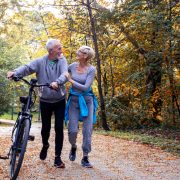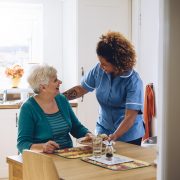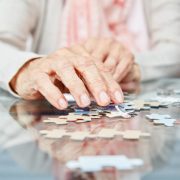The Healing Power of Nature: Why Outdoor Spaces Matter in Memory Care
Caring for a loved one with cognitive challenges requires immense dedication, often making it difficult for families to manage independently. Memory care facilities offer a safe, comfortable, and practical solution, providing the specialized support these individuals need. Beyond medical care, these facilities often adopt a holistic approach, focusing on the overall well-being of their residents. Research has consistently demonstrated the positive impact of nature and outdoor environments on human health, particularly for those experiencing cognitive decline. Exposure to nature has been shown to reduce stress and anxiety, improve mood, and even promote cognitive function. Fallbrook Memory Care Facility recognizes these crucial benefits and prioritizes thoughtfully designed outdoor spaces.
These areas are carefully planned to foster well-being and create a calming, therapeutic environment where residents can experience the restorative power of nature.
Mental Health Benefits of Nature in a Fallbrook Memory Care Facility
The power of nature profoundly benefits human well-being, impacting our emotional, physical, and mental states. For individuals living with Alzheimer’s disease or other forms of dementia, this therapeutic effect is particularly significant, offering a tangible improvement in their overall quality of life. Simple interactions with the natural world, such as a gentle stroll through a courtyard or light gardening, can yield remarkable results. These activities stimulate both physical health and cognitive function.
Exposure to natural sunlight helps regulate circadian rhythms, improving sleep patterns and a greater sense of calm. Furthermore, immersion in nature has been shown to have a physiological impact, slowing heart rate, lowering blood pressure, and reducing cortisol levels—the hormones associated with stress, anxiety, anger, and depression.
Stepping outside the Fallbrook Memory Care Facility offers residents more than just a change of scenery; it’s an opportunity to reconnect with the world around them. These outings provide a chance to engage their senses and observe the environment. In addition, outdoor activities foster social interaction. Residents can meet and connect with like-minded residents, leading to more meaningful conversations and a sense of community.
These social connections can significantly reduce feelings of loneliness and isolation, which are common among individuals with dementia. Nature’s tranquility, combined with social engagement, creates a supportive and enriching environment, enhancing the lives of Fallbrook residents.
Physical Health Benefits of Outdoor Spaces
Outdoor spaces offer many opportunities and benefits for individuals with cognitive challenges. Walking, stretching, gardening or strolls in a park can enhance cardiovascular endurance, bone health, strength, mobility, and balance. These gentle exercises contribute to overall physical well-being and can improve daily functioning.
Regular physical activity, facilitated by access to outdoor spaces, is a cornerstone of preventative medicine. It reduces the risk of chronic diseases such as heart disease, stroke, type 2 diabetes, and certain cancers. Incorporating regular physical activity also aids in maintaining ideal weight and overall health. Furthermore, research has indicated that balanced interaction with nature is essential in strengthening the immune system, contributing to greater resilience against illness.
Memory care facilities should prioritize access to outdoor spaces and activities to foster a healthier and more vibrant community. Beyond their physical benefits, outdoor spaces provide more than just recreation; they offer a sanctuary for relaxation and rejuvenation. This access to nature helps residents manage stress better, improve their mood, and enhance their overall well-being.
Outdoor spaces can promote relaxation and reduce stress, improving health outcomes and helping residents better cope with illness and complications from existing conditions.
Incorporating Nature into Daily Routines
Fallbrook Memory Care Facility truly understands the importance of nature for its residents. By creating safe, comfortable, and accessible outdoor spaces, they’ve fostered an environment where residents can thrive. These spaces aren’t just pretty; they’re designed to encourage activity, exploration, and relaxation, leading to meaningful experiences.
Here are some excellent ways residents can enjoy the outdoors at Fallbrook:
- Strolling through the garden or courtyard provides gentle exercise and a chance to enjoy the fresh air.
- Starting the day with light tasks like watering plants, feeding birds, or weeding can provide a sense of purpose and connection to nature.
- Spending time in the sun helps residents get their daily dose of Vitamin D, which is essential for mood and overall health.
- Sitting outside, listening to the birdsong, the wind rustling through the trees, or the gentle patter of rain can be incredibly calming and restorative.
- An herb garden, even a small one in pots, can add a touch of nature and provide sensory stimulation through the fragrant herbs.
Learn more about Fallbrook Assisted Living by clicking here!
Fallbrook Assisted Living is proud to offer its services to Fremont, NE, and surrounding areas and cities: Arlington, Cedar Bluffs, Ames Nickerson, Fontanelle, Arlington, Leshara, Colon, and Hooper






